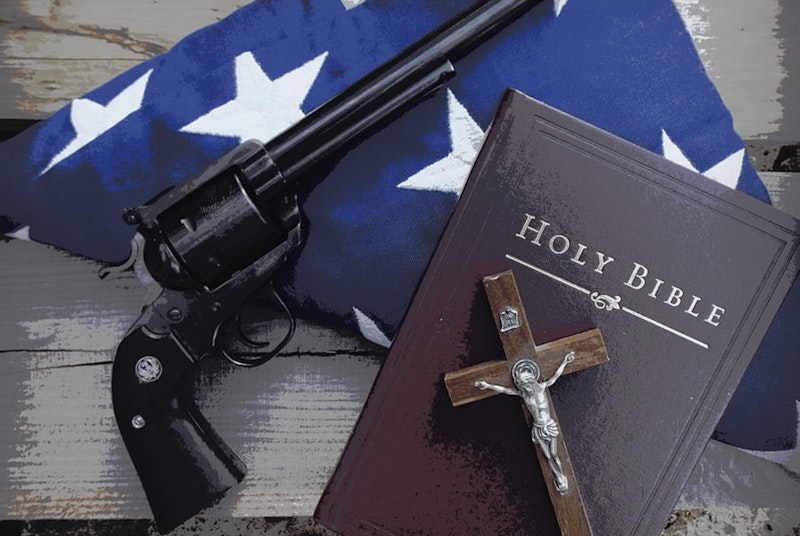It’s easy to live in a cultural or ideological bubble. The internet, once touted as an escape from such bubbles, turns out to reinforce them, with vast links and information showing an unanticipated conduciveness to echo chambers and propaganda. The experience of New Yorker film critic Pauline Kael, quoted to the effect that she couldn’t understand how Nixon had won when she didn’t know anyone who’d voted for him, resonates in today’s world, not least because it’s a distortion of what she said.
I’ve changed my mind about various things in life, in politics and beyond, which has helped expand the range of people and viewpoints to which I’ve been exposed. I was nominally Christian from childhood, but became baptized as an adult, and became a churchgoer, something in which I’d once had little to no interest. I don’t mind people taking a dismissive view of religion, as I once did, but I recommend one’s opinion come atsome point from participating in religion, rather than just observing what others do.
I’m an Episcopalian, and recently served as a delegate for my parish to our diocese’s annual convention, as I’d done in a couple of previous years. A diocese is a district headed by a bishop, a form of organization emphasized by Catholics and Anglicans, and evolved from civil administrative units of the Roman Empire. Episcopal means governed by bishops, and Episcopalians are part of the worldwide Anglican Communion. My church is in the Diocese of Newark, which covers North Jersey and is among the more theologically-liberal and politically-progressive parts of the Episcopal Church, which overall is an institution noted for raising the ire of religious conservatives. There are exceptions to all this, however, as some Episcopalians are conservative, and some congregations have affiliated with tradition-minded Anglican churches in Africa and Latin America.
The convention takes place on a Friday and Saturday. As a delegate, one votes for clergy and laypeople to fill various committees and delegations, and on resolutions about the budget and other matters. One attends workshops and presentations. There’s a Saturday morning service with communion. Some of the proceedings are mundane, but many are thought-provoking and inspiring. A video depicted a remarkable project in which six of our diocese’s churches are helping Afghan refugees, including through hands-on renovations of church properties as housing. Our bishop, Carlye Hughes, a black woman from Texas, is an uplifting speaker, even when she addresses dour topics such as declines in Episcopal congregations. She pressed us to call ourselves courageous, an attitude needed in trying times.
At a workshop on prison ministry, a black prison chaplain conveyed a valuable piece of information by emphasizing that church people, implicitly such as those in the room, may be seen by prisoners and ex-cons as manipulable marks, who can be hit up for money or relied upon to make excuses for bad behavior. “Accountability,” he repeatedly demanded; job training, help in getting housing, having a plan. “Not to bring them things but to bring them hope.” “We don’t judge, but we don’t pity.” It was a message to which the roomful of compassionate types was receptive, and likely needed to hear.
A session on “Justice for People and Planet” was less edifying, with an unfocused agenda and a knee-jerk attitude about world problems and solutions. An echo chamber. By contrast, a session on “The Hero’s Journey,” Joseph Campbell’s theory of a common structure among numerous stories, was absorbing, including in its relevance to spiritual journeys.
In plenary session, we voted on a couple of resolutions that were introduced, respectively, in response to recent gun violence around the country and the killing of Tyre Nichols by Memphis police. I’d no qualms about voting that our diocese needs to stand against police brutality and investigate its own history of racism. I was broadly supportive of the resolution pushing for gun control. Then someone introduced an amendment advocating a legal requirement that firearms be stored securely, with guns and ammunition stored separately. Someone else rose to point out that the separation defeats the purpose of defending a household. I agreed with that, and saw other problems: that it could increase accidents as people come to presume a gun is unloaded; would do little to prevent someone intent on murder or suicide; and would encourage flouting of the law. After some contentious back-and-forth, the amendment held up without the separate-ammo wording, and the resolution passed.
“God. Guns. Gas stoves.” It’s a phrase that Rep. Jim Jordan tweeted recently. I think that’s moronic, not least in the suggestion that those three things are some kind of package, something on which the public should choose sides in a yea-or-nay vote.
—Kenneth Silber is author of In DeWitt’s Footsteps: Seeing History on the Erie Canal and currently posts at Post.News.

